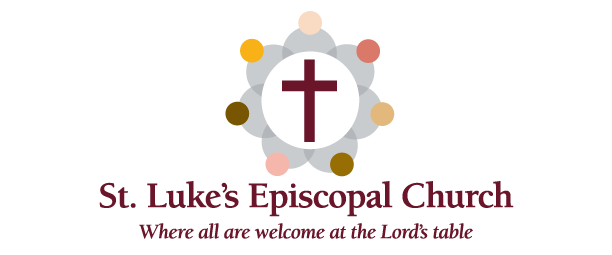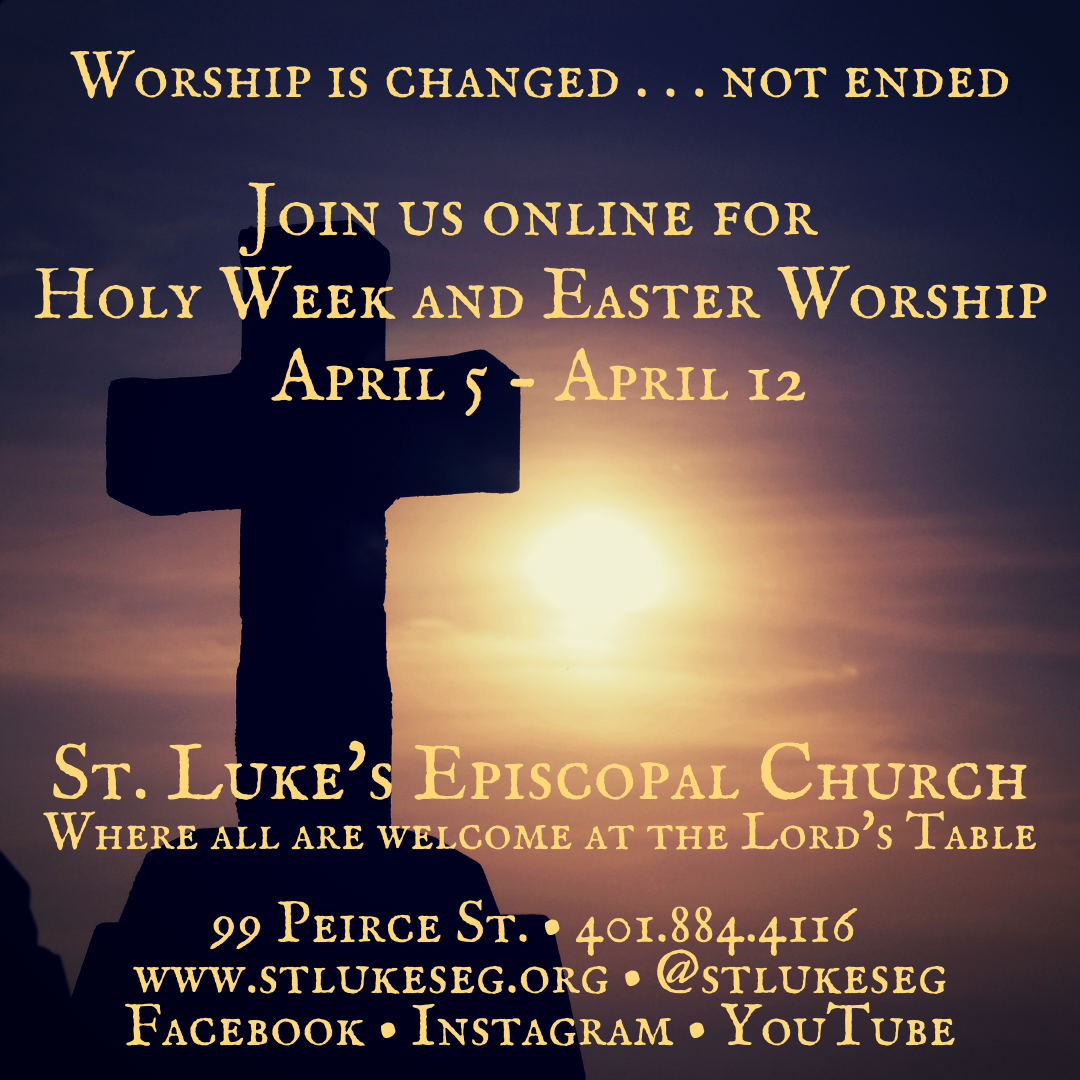Home > Lenten Blog 2025
The Faith He Left Behind
March 26, 2025

Deuteronomy 4:1-2, 5-9| Matthew 5:17-19| Psalm 78:1-6
When I first read today’s lessons, I honestly had no idea what to write. For weeks I pondered on the words, with nothing jumping out at me or grasping my attention. That is how I knew it was time to turn to God and the Holy Spirit. I prayed to be able to read these passages with spiritual eyes and for the Holy Spirit to guide the musings of my mind. What God would like me to share with you today is a rather personal story. It is a story of trial and tribulation, but it is also a story of great faith. It is the story of my father, his pilgrimage, and the faith he left behind.
To begin with a phrase from today’s collect: “Amid all the changes of our earthly pilgrimage, we may be guarded by your mighty aid.” I find this phrase to be so fitting for Lent, as I truly believe that Lent is, in a way, a pilgrimage. Is Lent not a journey that we embark upon each year with the intention of growing closer to God? It was not until this past year that I began to view Lent in this way. In fact, this Lent, I am reading a book entitled “It Is Finished: A 40 Day Pilgrimage to the Cross” as I meditate on the events of my life that inspired this focus. Through this reading, I have come to realize that in life, all of us are on a journey toward the cross. Each of our journeys will be deeply personal and entirely unique. As the collect reminds us, we will face many changes during our individual earthly pilgrimages. These changes will be, at times, unexpected, with some of them bringing us unrelenting joy and others shattering us to our core. Our paths may not always be straight or narrow and we will undoubtably encounter roadblocks or detours. But what we must remember is that while none of our journeys will look the same, we are all headed to the same destination. Along the way, the only constant is faith.
The beautifully strange thing about my father’s pilgrimage to the cross is how closely it aligns with the liturgical season of Lent, not only in timing but also in meaning. During Lent of last year, after only a few weeks of not feeling well, my father was hospitalized on Good Friday and received a terminal cancer diagnosis on Easter Sunday. Quite literally, my father was buried in the hospital with terminal sickness on the same day that Jesus was buried in the tomb and received confirmation of his impending death on the very day that Jesus rose to conquer death. Upon receiving this news, my father began his final pilgrimage as he took up his own cross and walked alongside Jesus, sharing in His suffering.
What happened next was something so beautiful that it could not have possibly come from the human nature of this earth, as the actions of my father on his deathbed embodied the very Scripture that we read in today’s lessons. In Deuteronomy, it is written to “give heed to the statues and ordinances that I am teaching you to observe, so that you may live to enter and occupy the land that the Lord, your God of your ancestors, is giving you.” I watched in awe as my father leaned deeply into God’s word, teachings, and commandments. He walked the walk and talked the talk for his entire life, but the level to which he took his faith in those last weeks is a legacy that forever lives on in those who experienced his goodness. One by one, he called family and friends to his bedside, offering overdue forgiveness to some, genuine gratitude and thanksgiving to others, and words of pride and affirmation to many. In doing so, he lived and breathed the words of the Lord’s prayer, “and forgive us our trespasses as we forgive those who trespass against us,” as he prepared to enter and occupy the kingdom of heaven as God as promised through his covenants.
In this way, he additionally embodied another piece of Scripture that we read today in Deuteronomy: “So as neither to forget the things that your eyes have seen nor to let them slip from your mind all the days of your life; make them known to your children and your children’s children.” My father never forgot the good or the bad that his eyes had seen, and through the wisdom of God, he chose to concentrate on the good and to let go of the bad. In these conversations, he made known to his family and children that he chose to offer forgiveness because he did not want to take hatred, anger, disappointment, or despair with him into heaven and because he felt he should forgive others the way that he asks to be forgiven. Watching him use his lasts bursts of energy to speak these words that were so physically difficult for him to breathe made me wonder, why do so many wait until it is time to die to offer forgiveness and tell people the way that they truly feel? I learned through watching my father’s pilgrimage to his cross that it is never too late allow your soul to forgive or to speak the truths of your heart.
In those final days, the energy in the house was overflowing with the “peace of God that surpasses all understanding” as every single person who walked through that door left with a bit of God’s peace in their heart. It was my father’s final and greatest gift to many. Priests who had come to anoint him had exclaimed that “the Lord is in this place” immediately upon stepping over the threshold of my parents’ home. There was no anger and there was no fear. Although none of us understood why this had to happen to a man so young and so strong, he had, just like Jesus, accepted his fate, taken up his cross, and was ready to meet his God. To his family, it was both the faith he exemplified and faith he inspired that was his final and greatest gift.
Today’s Psalm sings “that the generations to come might know, and the children yet unborn; that they in their turn might tell it to their children.” Is that not exactly what my father did? He shared the faith that convicted him, the God that had saved him, and the peace that the Lord had given him with every single one of us. I will share his story with my children and my sister with hers. The faith of my father is a legacy that will transcend generations of family.
Finally, on the Catholic feast day of the Sacred Heart of Christ, a day in which we celebrate the sacrifice and love of Christ, my father took his final breath and was ushered peacefully into the eternal kingdom of heaven. As a devout Catholic for his entire earthly life, who sacrificed everything out of love for his family, it was ultimately the sacrifice and love of Christ that saved him and carried him home. For it is written in today’s Gospel reading from Matthew, “but whoever does them and teaches them will be called great in the kingdom of heaven.”
This Lent, I invite each of you to reflect upon my father’s pilgrimage to the cross. Let us not wait until we are dying in order to live out the lessons that my father died to teach us. Whether we become slower to anger and quicker to forgive, learn to offer each other true words of love and pride, or completely surrender the path of our lives to God’s plan even when it seems unfair, there is something for each of us to gain from this story. Like many before him, my father was a pilgrim who often traveled the earth to pray at places of great holiness. The story of his life shows that our most significant pilgrimage will be the one to the cross. May knowing the sacrifice that Jesus Christ, our Lord and Savior, made for us on that cross fill us with a burning desire to journey toward Him, surrender it all, and fall upon our knees at the feet of our King. May we realize that our pilgrimage to the cross is part of a greater plan and lifelong journey to journey toward heaven’s pearly gates. May we lean into the lessons the Lord has taught us through his Word and His pilgrimage, living and learning each day from the faith He left behind.
Jill Howarth


